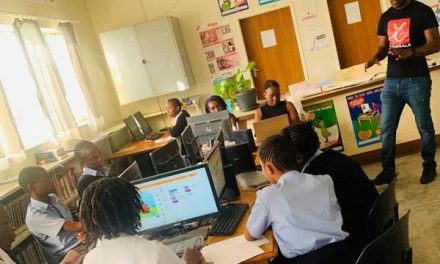
Enhancing employability of students

Carva Pop, Director at the Centre for Cooperative Education. The Polytechnic leads the fight against the gap between classroom and the real world work environment.
The Economist spoke to Carva Pop, the centre’s Director at the Polytechnic to get a better understanding of the programme. Reflecting on their mandate, he said, “The Centre for Cooperative Education Unit at the Polytechnic of Namibia was established four years ago and launched in March 2011 to promote the close collaboration in a coordinated fashion between the Polytechnic and its industry partners.
Pop pointed out that their primary mandate is to make Polytechnic students desirable employees by providing the opportunity of real work experience and positioning them for success and career development.
“They are essentially five motivations for this initiative,” Pop said. The first motivation and primary role is to facilitate the placement of students in industry for work integrated, learning internships which is compulsory. As part of the Polytechnic’s curriculum, internships play an integral part in the final assessment of the students before they graduate, and this is one of the roles of the unit to ensure students progress and to prepare them for the job market.
Secondly, Pop identified the need for access to companies in the various economic sectors, to become partners in hosting career days and promote actual careers in the actual Namibian economy to the young people on campus.
The third motivation is to have access to companies for the purpose of research. Since most degree courses at the Polytechnic require students to do applied research through actual placement in the real industry, companies’ willingness to participate and make these positions available, is essential to prepare students for the ever-evolving work environment.
Pop also said another need for the unit is for the staff to access consultant opportunities so that the Polytechnic staff also stays in touch with the pulse of business.
The centre’s final motivation is to seek scholarships and bursary programmes for the students.
All five motivations combine in the centre’s role as facilitator so that students get a practical competence to be able to use the fundamental theories that are gained in class, to apply these to conditions and requirements of their jobs, once they leave the campus. Enhanced employability is the centre’s overarching motivation. Hilija Shikomba a marketing intern at the unit said, “The programme at the centre has helped me a lot. Ever since I started in March, I have been exposed to different marketing environment as well as been able to nurture my presentation skills which are vital in the marketing industry. Not only did I enhance my communication skills, I have been able to marry what I gained in the classroom with the work environment.”
“If I get another job after my internship, I will be able to cope quiet well with any other work environment as I can now relate to real-life conditions.”
Pop said they rely extensively on the feedback from partner companies to determine what programmes are to be covered and to identify areas that need attention. Taking it a step closer to reality, some of the companies nominate members for the Curriculum Advisory Board and contribute to the compilation of course work in all the various degrees. Asked how students perform and what the general challenges are, Pop said before students are sent into the different work fields to tackle the lack of soft skills, the unit undertakes compulsory workshops for the students. “The workshops will generally have information created from feedback from the different industry partners and this is a good way to prepare them.” In terms of placement of students, Pop commended the Ongwediva Town Council that has been at the forefront of this exercise as they regularly accommodate students. However, he noted that other cooperates are still hesitant to engage in the formal programme, but he hopes that more organisation will be able to incorporate it into their Social Corporate Responsibilities, as the students themselves will eventually give back to the community.











































